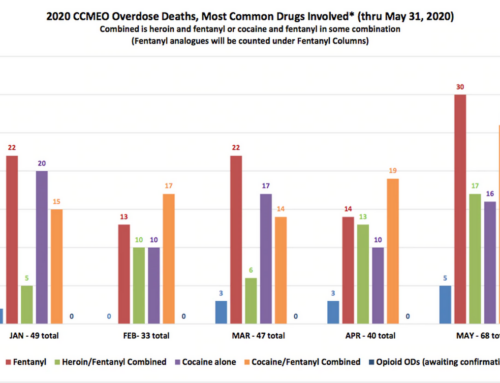 (COLUMBUS, Ohio)—Ohio Attorney General Mike DeWine today filed a lawsuit against four major prescription opioid distributors in Madison County Court of Common Pleas. The lawsuit alleges that the drug companies engaged in unsafe distribution practices that ignored their responsibility under law to provide effective controls against opioid diversion.
(COLUMBUS, Ohio)—Ohio Attorney General Mike DeWine today filed a lawsuit against four major prescription opioid distributors in Madison County Court of Common Pleas. The lawsuit alleges that the drug companies engaged in unsafe distribution practices that ignored their responsibility under law to provide effective controls against opioid diversion.
“We believe the evidence will show that these companies ignored their duties as drug distributors to ensure that opioids were not being diverted for improper use. They knew the amount of opioids allowed to flow into Ohio far exceeded what could be consumed for medically-necessary purposes, but they did nothing to stop it,” said Ohio Attorney General Mike DeWine. “And much like the drug manufacturers who continue to fail to do the right thing, these distributors are doing precious little to take responsibility for their actions and help pay for the damage they have caused.”
The four distributors which are listed as defendants include:
- McKesson Corporation
- Cardinal Health, Inc., and its subsidiaries
- AmerisourceBergen Drug Corporation
- Miami-Luken, Inc.
The lawsuit alleges, among several counts, that the drug companies were negligent and created a public nuisance by using unsafe distribution practices and by irresponsibly oversupplying the market in and around Ohio with highly-addictive prescription opioids. The companies are alleged to have failed to act upon their responsibilities under both federal and Ohio law to stop such orders that would result in oversupply and report these suspicious orders to the United States Drug Enforcement Agency (DEA) and the Ohio Board of Pharmacy. The lawsuit also alleges that the companies should have known that the volume of opioids supplied far exceeded what could be responsibly used in markets in Ohio and would likely have contributed to the opioids being illegally diverted and abused. This behavior directly fueled the opioid epidemic Ohio is currently facing.
In the lawsuit, Attorney General DeWine is seeking a number of remedies including punitive damages as well as compensatory damages for costs incurred by Ohio for its increased spending for healthcare, criminal justice, social services, and education. The lawsuit also seeks to enjoin the defendants from further improper conduct by complying with reporting requirements for suspicious orders and to undertake more complete reporting of suspicious orders to the DEA and the Ohio Board of Pharmacy as well as the Ohio Attorney General’s Office.
The lawsuit was filed in Madison County, which has consistently had a higher number of opioids distributed to it than the statewide average. In 2016, the last year for which data is available, an average of more than 76 opioid doses was distributed for every man, woman, and child in Madison County, a rate that was 39% higher than the Ohio statewide average for that year.
A copy of the lawsuit is available on the Ohio Attorney General’s website.





